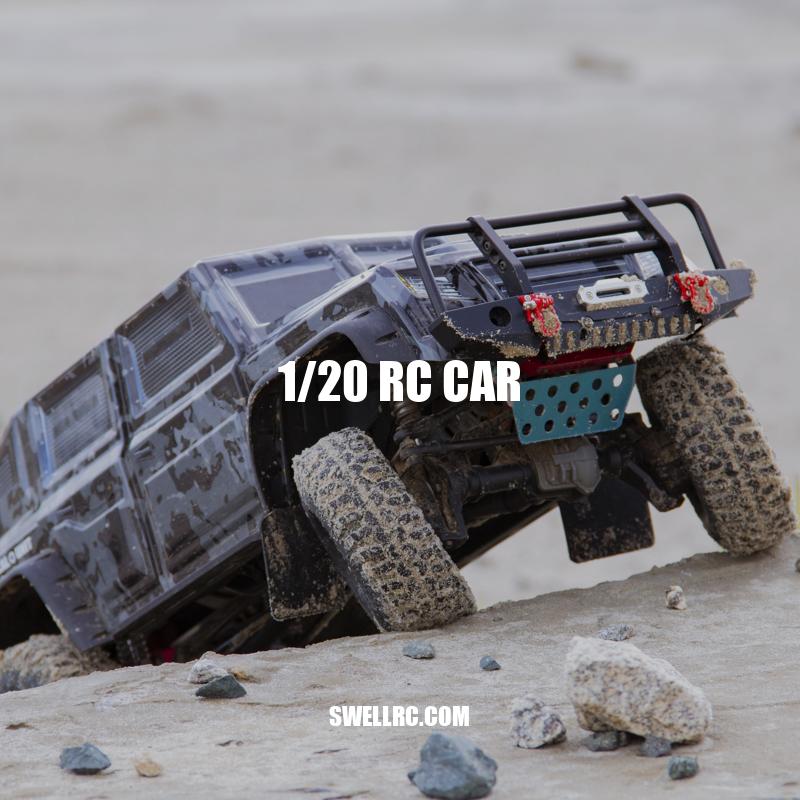Discovering the World of 1/20 RC Cars: A Beginner’s Guide
1/20 RC cars are a booming trend among hobbyists and enthusiasts who are looking for engaging and challenging experiences. These small remote-controlled vehicles are miniature replicas of their full-scale counterparts that come in different models and types. With their ability to maneuver and handle around tough corners and obstacles, 1/20 RC cars are among the most competent toys and models that exist in the market. They are revered for their reliable, durable and efficient performance, making them the go-to choice for car enthusiasts who want to enjoy hours of entertainment, creativity, and skill-building. In this article, we will cover what 1/20 RC cars are, the features of these cars, choosing the right one, maintaining an RC car, and some useful tips and tricks to help you get the most out of your vehicle.
1/20 RC cars are remote-controlled vehicles that are smaller in size compared to their full-scale counterparts. These cars come in different models and types, with on-road, off-road, and drift cars being popular choices.
They typically weigh between 50-150 grams and are made of high-quality materials such as aluminum, plastic, and carbon fiber. Here are some features of 1/20 RC cars:
- Small and lightweight size, making them easy to handle and maneuver around tight corners and obstacles.
- Excellent precision and control due to their highly responsive remote-control systems.
- Reliable and efficient performance, with electric or nitro-powered motors providing high-speed action.
- Available in different styles and models, making them ideal for car enthusiasts looking to add models to their collection or for those who want to race with friends.
Overall, 1/20 RC cars are an engaging and exciting hobby that provides entertainment, creativity, and skill-building opportunities for enthusiasts of all ages. For more information on the different types of 1/20 RC cars, check out websites such as rcgroups.com and hobbytron.com that provide product reviews, user experiences, and detailed guides on everything related to these fun miniaturized vehicles.
What is the size scale for RC cars?
The size of an RC car is based on its scale in relation to the actual car it emulates, with the most common size being 1/10 scale (or 1:10 scale). Mini or micro RC cars are typically 1/24 scale, with the smallest ever made at 1/90 scale. For more information on this topic, you may refer to the Wikipedia page on Radio control.
Choosing the right 1/20 RC car
Choosing the right 1/20 RC car involves considering various factors, such as one’s level of expertise, preferred driving style, and budget. Here are some things to keep in mind:
- High-speed or off-road? Choose a car model based on the terrain you will be driving on. Off-road models come with bigger wheels and higher ground clearance, while on-road models have lower and smaller wheels for better handling and speed on smooth surfaces.
- Nitro or electric? Decide which type of motor would suit your needs. Electric-powered cars are easier to maintain and provide smoother acceleration, while nitro-powered cars are faster and provide the distinct sound and smell of a real car engine.
- Budget and quality. 1/20 RC cars can range from $15 to $300 or more, depending on their features and model. It is important to balance cost and quality features when choosing a car.
- Brand reputation. Look for reputable brands that offer good customer support and have reliable spare parts available.
Here are the top 5 brands to consider when choosing a 1/20 RC car:
| Brand | Features | Price Range |
|---|---|---|
| Tamiya | Wide range of models, good quality and durability | $50 – $200 |
| Losi | Various on-road and off-road models, packed with features | $60 – $300 |
| Traxxas | Diverse range of models, nitro and electric powered | $100 – $300 |
| Team Associated | High-quality, racing-focused models | $80 – $300 |
| Redcat Racing | Affordable and varied models, suitable for all ages and levels | $15 – $150 |
By considering these factors and top brands, one can find the 1/20 RC car that is ideal for their skills and needs. It is also important to do further research and read product reviews on websites such as rccaraction.com and rcdriver.com to make an informed decision.
How to pick a car model?
If you’re in the market for a new car, it can be overwhelming to choose from the endless list of car models available. The first step is to figure out what you need in a car. Do you need storage space? Good gas mileage? Safety features? Once you’ve figured out your needs, set your budget. A car finder tool, like Edmunds or Kelley Blue Book, can help you match your needs and budget to the market. It’s important to test drive at least three cars to get a feel for the driving experience. After you’ve done your research and test drove several cars, review your notes and make an informed decision.
Maintaining a 1/20 RC car is essential to ensure its longevity and optimum performance. Here are some tips that can help in keeping your 1/20 RC car in good condition:
- Regular Cleaning: Clean your car after every run to remove dirt, debris, and moisture. Use a soft cloth or brush to clean the car’s body, wheels, and engine compartment.
- Lubrication: Use a silicone-based lubricant to lubricate the moving parts such as the gears, suspension, and axles.
- Battery Care: Charge your battery regularly and avoid over-discharging it. Use a battery with a voltage and capacity rating recommended by the car’s manufacturer.
- Inspect Your Car: Check for loose screws, damaged parts, and worn-out tires regularly. Replace the damaged parts and tires as needed.
Here are some websites and products that can help in maintaining your 1/20 RC car:
- RC Car Maintenance Guide found on websites such as rccaraction.com and rcdriver.com provide helpful tips and guides for maintaining different types of RC cars, including 1/20 RC cars.
- Replacement Parts: Many online stores such as amainhobbies.com and towerhobbies.com offer a wide range of spare parts for different models of 1/20 RC cars
- Cleaning Products: Specialized cleaning products such as f1wax.com RC cleaner can help in maintaining your 1/20 RC car’s look and performance.
By following these tips and utilizing appropriate resources, you can ensure that your 1/20 RC car remains in good condition and lasts for a long time.
How long should my car last?
A conventional car can last for up to 200,000 miles, with some well-maintained models reaching even more, up to 300,000 miles or beyond. The average age of passenger cars in the United States is approximately 12 years. Choosing a good quality make and model can help to ensure your car lasts longer.
Conclusion
In conclusion, 1/20 RC cars are a great way to indulge in a fun and exciting hobby. They offer a thrilling experience of controlling a miniature version of a real car, and they come in different models to cater to various interests. However, to enjoy this hobby, regular maintenance is crucial, and hobbyists should take good care of their cars to keep them in good condition.
Maintenance involves regular cleaning, lubrication, battery care, and inspection. By taking good care of their RC cars, owners can enjoy the longevity and optimum performance of their models. Additionally, there are numerous websites and products that can assist in maintaining RC cars.
Overall, 1/20 RC cars are an exciting and rewarding hobby that requires patience, skill, and creativity. They provide hours of entertainment and are a great way to learn more about cars and technology. Whether you are a beginner or experienced hobbyist, there is a 1/20 RC car out there for everyone. So, get yourself a model and start having fun!



